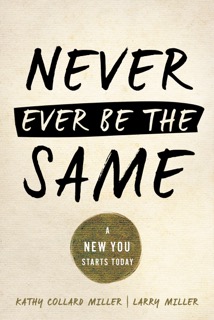Leadership: A Tale of Two Cities
Nali Hilderman’s love of women’s history and Christian theology gives her an impassioned desire to help women make a difference in today’s culture. In this Leadership UPGRADE, she challenges our  thinking.
thinking.
“While there are many different theories regarding leadership,” Nali says, “there are some key differences between how the world defines it and how the Bible defines it.”
I (Dawn) love to read leadership blogs—both Christian and secular, and I know she is right. A biblical perspective on leadership not only changes our motives; it also changes our methodology.
Nali continues . . .
In the fifth century, Saint Augustine wrote a now famous treatise titled “The City of God.” Augustine explained some key differences between the rule and attitude of the “city of man”— ruling empires of the world—and the “city of God” (which is made up of the followers of Christ and His church).
This idea of comparison can be applied to theories related to leadership in today’s modern world. While there are many different theories regarding leadership, there are some key differences between how the world defines it and how the Bible defines it.
Colossians 2:8 commands us not to be taken captive by philosophies of this world, but rather to focus on Christ.
As Christ’s followers it is wise for us to understand these distinctions and seek to live out the principles of the City of God in our leadership.
Distinction #1
The City of Man considers power over others as a key component of leadership. Society tends to laud those who are wealthy, powerful and successful as leaders.
However, the City of God considers serving others as the key component of leadership. Christ admonished His disciples when they asked who will be the greatest among them. He told them they are not to rule as the Gentiles do. He says that the last shall be first in the Kingdom of Heaven and that He Himself did not come to be served, but to serve (Matthew 20:24-28).
Ask yourself, “How am I using my leadership in regard to others? Am I lauding my power over others, or am I serving others for their betterment?
Distinction #2
The City of Man considers influence as a key descriptor of leadership. Society tends to value the number of blog posts, YouTube views, Twitter followers, and albums sold as indicators for who is “leading.” Often, leaders in the City of Man wield their influence for selfish and worldly gain.
While the City of God also values influence as a key component of leadership, the purposes driving influence are wholly different.
We are not to lead for selfish gain, but are commanded in scripture to not think more highly of ourselves than we ought.
Also we are to pursue compassion, love, righteousness, and truth (Philippians 2:3-5, Colossians 3:12-15).
In his book, Creation Regained: A Reformational Worldview, author Albert Wolters challenges:
"Anything in creation can be directed either toward or away from God—that is, directed either in obedience or disobedience to His law. *
As you lead today, take time to reflect on whether your leadership is turning people towards fulfilling their own selfish ambition or towards a spirit of love and truth.
How you are wielding power and influence in the lives of others? Have you been “taken captive” by the world’s philosophy of leadership, or are you a woman pursuing the City of God and leading others in a biblical way?
 Nali Hilderman is a professor of American history at San Diego Christian College and Director the college’s Dr. Henry Morris Leadership Program. She studies women’s history and Christian theology, trying to make sense of how to be a confident, successful Christian woman who does not buy into the secular feminist mentality. She attends Journey Community Church in La Mesa, California.
Nali Hilderman is a professor of American history at San Diego Christian College and Director the college’s Dr. Henry Morris Leadership Program. She studies women’s history and Christian theology, trying to make sense of how to be a confident, successful Christian woman who does not buy into the secular feminist mentality. She attends Journey Community Church in La Mesa, California.
* Albert M. Wolters, Creation Regained: Biblical Basics for a Reformational Worldview, (Wm. B. Eerdmans Publishing Co, 2005), p. 49.
 Post a Comment → Posted on
Post a Comment → Posted on  Thursday, March 19, 2015 at 7:45AM
Thursday, March 19, 2015 at 7:45AM  City of God,
City of God,  City of Man,
City of Man,  Leadership,
Leadership,  Nali Hilderman,
Nali Hilderman,  Women in Leadership,
Women in Leadership,  Worldview Upgrade Your Life
Worldview Upgrade Your Life  Biblical Thinking,
Biblical Thinking,  Choices,
Choices,  Leadership
Leadership 














